High Precision Ultrasonic Thickness Gauge
Product Details:
- Display FSTN digital LCD with cold back light inch/mm
- Weight 323 Grams (g)
- Product Type High Precision Ultrasonic Thickness Gauge
- Size 132 X 76.2 mm
- Color Black
- Usage Industrial
- Material Plastic
- Click to View more
X
High Precision Ultrasonic Thickness Gauge Price And Quantity
- 1 Piece
High Precision Ultrasonic Thickness Gauge Product Specifications
- High Precision Ultrasonic Thickness Gauge
- Plastic
- 323 Grams (g)
- FSTN digital LCD with cold back light inch/mm
- Industrial
- 132 X 76.2 mm
- Black
High Precision Ultrasonic Thickness Gauge Trade Information
- 7-10 Days
Product Description
A high precision ultrasonic thickness gauge is a specialized instrument used to measure the thickness of various materials by employing ultrasonic waves. These gauges are commonly used in industries such as manufacturing, aerospace, automotive, and construction, where precise measurements of material thickness are essential for quality control and safety purposes.
Key features of a high precision ultrasonic thickness gauge typically include:
2. High Accuracy: These gauges offer high levels of accuracy, often with measurements down to fractions of a millimeter or even micrometers, depending on the model and application.
3. Multiple Measurement Modes: They often support various measurement modes to accommodate different materials and surface conditions, such as pulse-echo mode and echo-echo mode.
4. Wide Range of Applications: These gauges are versatile and can measure the thickness of a wide range of materials including metals, plastics, glass, composites, and ceramics.
5. Digital Display: Most modern ultrasonic thickness gauges feature digital displays that provide clear and easy-to-read measurements.
6. Data Logging and Connectivity: Some advanced models offer data logging capabilities, allowing users to store and analyze measurement data. They may also have connectivity options such as USB or Bluetooth for transferring data to a computer or other devices.
7. Durable Construction: Since these gauges are often used in demanding industrial environments, they are typically built to be rugged and durable, with features like shock resistance and waterproofing.
8. User-Friendly Interface: They typically have intuitive user interfaces with easy-to-navigate menus and settings, making them accessible to operators with varying levels of experience.
9. Calibration Options: Calibration is critical for maintaining accuracy. High precision ultrasonic thickness gauges often provide calibration options to ensure accurate measurements over time.
10. Battery Operation: Many models are battery-powered for portability and convenience, although some may also have options for AC power.
11. Compliance with Standards: Depending on the industry and application, these gauges may need to comply with specific standards and regulations, such as ASTM or ISO standards.
Uses of High Precision Ultrasonic Thickness Gauge:
1. Manufacturing Quality Control: In manufacturing industries such as automotive, aerospace, and electronics, these gauges are used to ensure the consistency and quality of materials during production processes. They help detect variations in thickness that may affect the performance or integrity of finished products.
2. Metal Fabrication and Welding: Ultrasonic thickness gauges are essential tools for metal fabricators and welders to monitor the thickness of metal plates, pipes, and structures. They ensure that welds meet specified thickness requirements and detect any defects or inconsistencies in the welded joints.
3. Corrosion Monitoring and Maintenance: Industries like oil and gas, marine, and infrastructure maintenance use ultrasonic thickness gauges to monitor the thickness of metal structures over time. By regularly measuring thickness, they can detect corrosion, erosion, or material degradation, allowing for timely maintenance and repair to prevent structural failures.
4. Pipeline Inspection: Ultrasonic thickness gauges are employed in the inspection of pipelines for oil, gas, water, and other fluids. They help identify areas of thinning due to corrosion, erosion, or other factors, enabling operators to prioritize maintenance and prevent leaks or ruptures.
5. Shipbuilding and Maritime Industries: Shipbuilders and maritime maintenance teams use ultrasonic thickness gauges to assess the thickness of ship hulls, bulkheads, and other structural components. Regular inspections help ensure vessel integrity and compliance with maritime safety regulations.
6. Construction and Civil Engineering: In construction projects involving concrete, ultrasonic thickness gauges are used to measure the thickness of concrete slabs, walls, and structural elements. This helps verify construction quality and ensure adherence to design specifications.
7. Material Testing and Research: Ultrasonic thickness gauges are valuable tools in material testing laboratories and research facilities. Researchers use them to characterize the mechanical properties of materials and study the effects of various factors such as temperature, pressure, and stress on material thickness.
8. Safety Inspections and Non-Destructive Testing (NDT): Ultrasonic thickness gauges are widely used in non-destructive testing (NDT) to assess the integrity of structural components without causing damage. They play a crucial role in safety inspections of critical infrastructure, industrial equipment, and transportation systems.
9. Agriculture and Food Processing: In agriculture and food processing industries, ultrasonic thickness gauges are utilized to measure the thickness of materials such as plastic films, packaging materials, and food containers. This helps ensure product quality and compliance with safety standards.
Tell us about your requirement

Price:
Quantity
Select Unit
- 50
- 100
- 200
- 250
- 500
- 1000+
Additional detail
Mobile number
Email
 English
English Spanish
Spanish French
French German
German Italian
Italian Chinese (Simplified)
Chinese (Simplified) Japanese
Japanese Korean
Korean Arabic
Arabic Portuguese
Portuguese
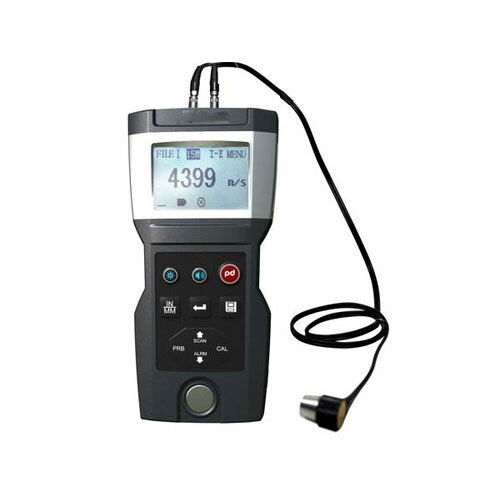

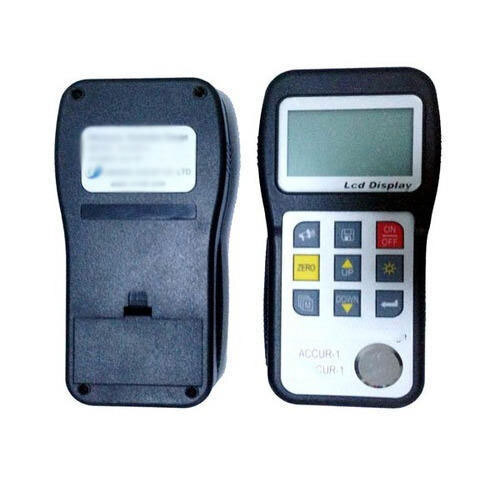
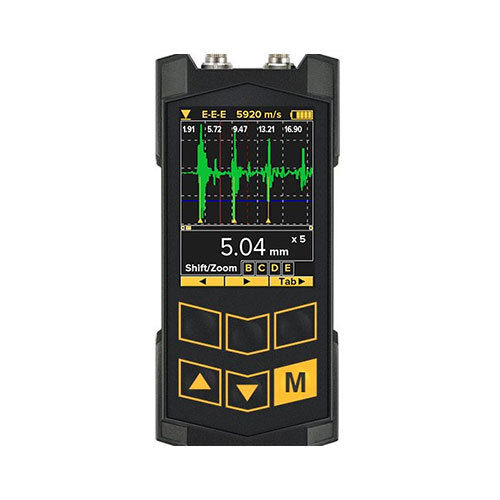
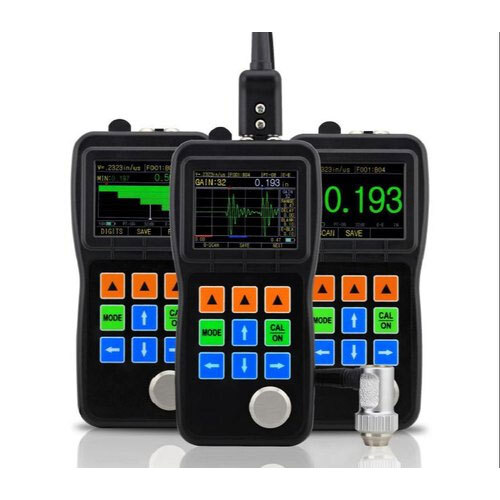
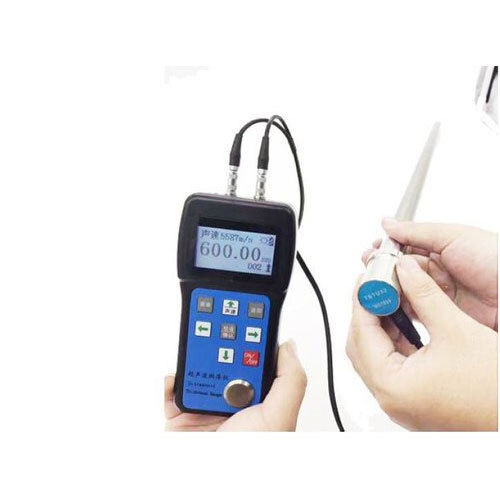
 Call Me Free
Call Me Free
